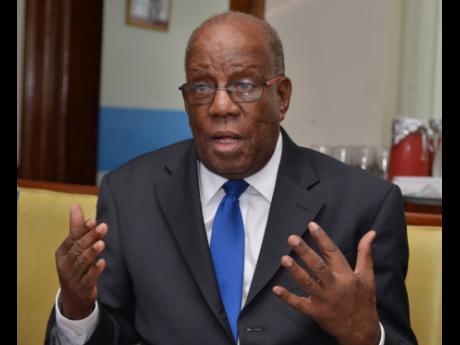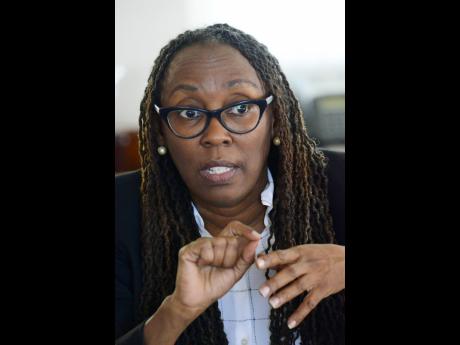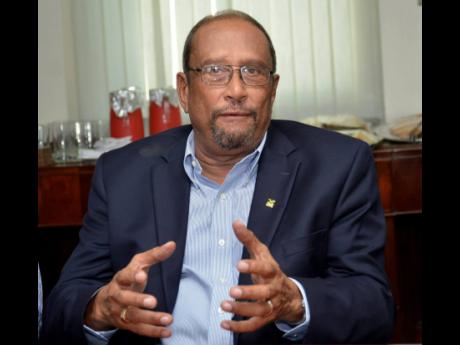Holness admin gets failing grade for corruption - Ja won’t get rid of scourge until bigwigs jailed, citizens open eyes to crippling effects
Despite occasional howls from civil society, Jamaica will not see a dramatic decline in corruption – or the perception thereof – until enablers in high places are collared and locked away, insists management consultant Dr Henley Morgan as three analysts last week rapped the Andrew Holness administration for its efforts to tackle corruption.
Morgan, founder and chairman of Agency for Inner City Renewal (AIR) who has worked for decades in the gritty Trench Town community, said corruption has long become attractive to the populace, and successive administrations have made no real progress in stamping out the practice.
“It is said that a people get the government they deserve. It is also said that a government reflects the people from which it comes. The only thing that can tame the beast of crime and violence, corruption and other behaviours that now inform the culture of a people are laws, rules, [and] regulations properly enforced,” Morgan told The Sunday Gleaner last week.
“Unfortunately, in Jamaica, there has been a problem with enforcement.”
Acknowledging that Jamaica has benefited from significant financial contributions to civil-society and state watchdogs, including the Integrity Commission, and has taken some steps with legislative advances, Morgan reasoned that corruption has become institutionalised and will not go away any time soon.
For him, there is only one solution: “Dig it out from the roots through enforcement.”
Added Morgan: “This is where people do jail time. Where corruption pays, corruption stays. It’s simple mathematics. And until corruption costs more than it pays, it cannot be eradicated. And [it’s] the same thing for its first cousin, crime and violence,” he posited.
Asked to grade the country’s progress in rooting out corruption, Morgan said the Government’s efforts left much to be desired.
“Giving a grade is not necessarily finger-pointing,” he said. “I think Government should bear the heavy end of what is allowed, and I would say that based on the Corruption Perception Index (CPI) and what we see every day, administrations across the board have a failing grade.”
Spoils could determine who wins elections – Mitchell
Former Private Sector Organisation of Jamaica head Howard Mitchell said that with many Jamaicans holding the belief that they should benefit from political spoils, the practice would be hard to stamp out.
“People see their elected representatives as a means to getting scarce benefits and spoils. Politics and politicians are not seen as making a contribution to making a state and society a stable place to live. They are viewed as the gatemen to benefits and spoils,” said Mitchell, who is also chairman of the Jamaica Accountability Meter Portal (JAMP), a non-profit organisation dedicated to improving governance in the island.
“A person can lose an election because of their inefficiency in giving out spoils,” he added.
“That mindset will not change until people see how much they are losing by virtue of corruption and how corruption is linked to crime and violence. It is a mindset that is ingrained in our society, that is linked to the patron-client relationship, that is linked to slavery and the busha-slave relations: What can you do for me?” he explained.
Mitchell said that successive administrations have made attempts to deal with the scourge of corruption with little success, crediting the Bruce Golding administration of 2007-2011 with many of the anti-corruption measures now in place.
He gave the Portia Simpson Miller administration (2011-2016) a passing grade, while the Golding and current Andrew Holness governments received failing grades.
The issue of corruption was placed squarely on the table again last week with the release of a report detailing findings of an Integrity Commission probe into the Petrojam saga, shedding further light on the state-owned oil refinery’s apparent culture of excess, cronyism, and mismanagement.
In the 2019 Corruption Perception Index released in January by Transparency International, Jamaica slipped four places down the ranking to 74 out of 180 countries and territories, after also falling two places the previous year.
The 2019 report gave the island a score of 43, down from 44 a year earlier. A country’s score indicates the perceived level of public sector corruption on a scale of 0 (highly corrupt) to 100 (very clean).
Following the trail, making headway
Last Friday, Integrity Commission Executive Director Greg Christie said corrupt acts by public officials are usually betrayed by red flags, despite efforts to conceal them.
“Public officials, who, in return for bribes, abuse their office by shaping public policy or even laws to favour special interests, are a big part of the problem of grand corruption. Such forms of corruption, though executed clandestinely, are often betrayed by red flags,” the former contractor general tweeted.
“The fight against corruption starts with lawmakers. Period. You don’t get strong and effective anti-corruption institutions with weak anti-corruption laws! Gov’ts that hold the majority vote in Parliaments must, therefore, be held primarily accountable for endemic corruption,” he added yesterday.
JAMP Executive Director Jeanette Calder said Jamaicans will start paying attention to corruption when they realise how it directly affects them.
For instance, she said that with Jamaica losing roughly $64 billion annually to corruption and a proper Type A hospital costing about $4 billion to construct, every parish could have its own properly outfitted hospital. Portmore, she said, could have already had a hospital, had it not been for corruption.
“Things are not where they should be. Definitely not. But we are making headway,” she told The Sunday Gleaner. “The pace at which we make them is another story.”
She gave the Golding regime a ‘B’ for legislative measures towards accountability, but said she was unimpressed by both the Simpson Miller and Holness administrations.




